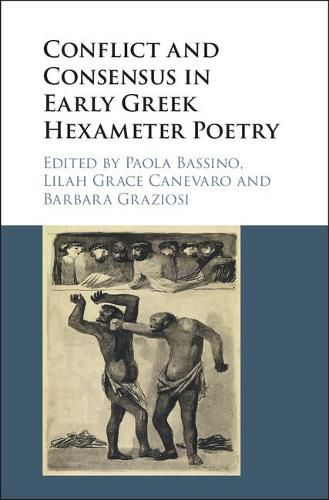Readings Newsletter
Become a Readings Member to make your shopping experience even easier.
Sign in or sign up for free!
You’re not far away from qualifying for FREE standard shipping within Australia
You’ve qualified for FREE standard shipping within Australia
The cart is loading…






Achilles inflicts countless agonies on the Achaeans, although he is supposed to be fighting on their side. Odysseus’ return causes civil strife on Ithaca. The Iliad and the Odyssey depict conflict where consensus should reign, as do the other major poems of the early Greek hexameter tradition: Hesiod’s Theogony and the Homeric Hymns describe divine clashes that unbalance the cosmos; Hesiod’s Works and Days stems from a quarrel between brothers. These early Greek poems generated consensus among audiences: the reason why they reached us is that people agreed on their value. This volume, accordingly, explores conflict and consensus from a dual perspective: as thematic concerns in the poems, and as forces shaping their early reception. It sheds new light on poetics and metapoetics, internal and external audiences, competition inside the narrative and competing narratives, local and Panhellenic traditions, narrative closure and the making of canonical literature.
$9.00 standard shipping within Australia
FREE standard shipping within Australia for orders over $100.00
Express & International shipping calculated at checkout
Achilles inflicts countless agonies on the Achaeans, although he is supposed to be fighting on their side. Odysseus’ return causes civil strife on Ithaca. The Iliad and the Odyssey depict conflict where consensus should reign, as do the other major poems of the early Greek hexameter tradition: Hesiod’s Theogony and the Homeric Hymns describe divine clashes that unbalance the cosmos; Hesiod’s Works and Days stems from a quarrel between brothers. These early Greek poems generated consensus among audiences: the reason why they reached us is that people agreed on their value. This volume, accordingly, explores conflict and consensus from a dual perspective: as thematic concerns in the poems, and as forces shaping their early reception. It sheds new light on poetics and metapoetics, internal and external audiences, competition inside the narrative and competing narratives, local and Panhellenic traditions, narrative closure and the making of canonical literature.